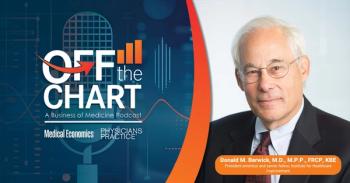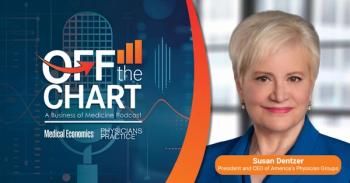
What Consumer-Driven Healthcare Really Means to Physicians
The words “consumer-driven healthcare” are bandied about like the buzz words, but their real implications are profound.
Consumer-driven healthcare represents a fundamental change in the U.S. healthcare system. It is already here, is responsible for spending reductions but not cutting waste, and will soon hit home as the most challenging issue healthcare providers will have to deal with.
“Uhhh, Ohhhhkayyy,” is probably the first thing to come to mind, so let’s use “consumer-centric healthcare” as a more apt descriptor. This phenomenon represents a seminal change on a number of levels including how healthcare services are paid, patient compliance, clinical outcomes, patient expectations, and patient behavior. It is a quickly rising threat to upset the ability to achieve the triple aim upon which new schemes of reimbursement are reliant.
So, for those of you who think we’ve lost a few buttons, consider this: The overall healthcare spend in the United States has been relatively static in the past three years despite double-digit increases in prices. That is because people are foregoing care, contributing mightily to the epidemic growth of chronic disease. You don’t see that in your practices because those people don’t see you - until they have to.
And, it’s going to get much worse much faster.
“Ha,” you may say. And you, in the corner, no, in the blue scrubs, that was not nice. And sir, in the second row, I’m not that flexible.
Now, moving on, there are three reasons:
1. Rapidly increasing and proliferating deductibles and co-pays and the tens of millions of people who will be dumped into high-deductible health insurance exchange policies, or simply opt to pay the fines and do without.
2. The already underinsured employees whose companies will be choosing between crippling premium increases next contract period or raising deductibles to avoid them. Guess which one they will opt for?
3. Those with great policies who will be facing a 40 percent tax on the entire premium amount and love letters from the IRS.
Effectively, and likely, a significant portion of the population, if not a majority, will be self-insured with partial catastrophic coverage if they are insured at all until insurers start shifting risk to providers in earnest, which is the best of few options for them.
That leaves patients shopping for price, expecting a more lot more for their money, and making financial decisions on everything from medicine to diagnostics to treatment and procedures to screenings. This is nothing new at all, there will just be more of them - tens of millions more.
Who and what to blame are beside the point at this juncture.
How you are going to react to protect your practice is the issue of the day, and there is no easy out, magic bullet, or secret sauce - the reaction needs to be transformational and it will be hard work that requires an investment. Here is a partial list of the most important things to do:
• Join a group or network of independent physicians using risk, disease, and population-management system tools that allow you to take risk within two years even if your practice is owned by someone else - the tools, reimbursement contracts, network, and benefits are your best defense;
• Hire a care coordinator and sufficient mid-level clinicians to allow physicians to manage the process instead of providing the services directly except to the more complex cases;
• Employ staff who understand customer service;
• Improve patient access to your practice;
• Marry the financial impact of treatment with the clinical aspects to illustrate value;
• Post your prices for the most common visits and procedures adjusted to your best level of insurance reimbursement. Also, have a cash fee schedule that offers a discount for money today;
• Make the case as to why you are worth what you want;
• Make the case as to how you provide the right care at the right time at the right price;
• Lead the way, contact the local news outlets, and the press will do the rest for you.
Doing nothing is the worst of your options.
Newsletter
Optimize your practice with the Physicians Practice newsletter, offering management pearls, leadership tips, and business strategies tailored for practice administrators and physicians of any specialty.






